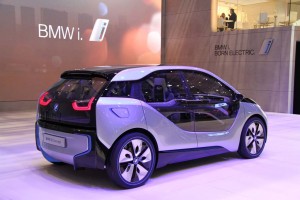Mercedes-Benz parent Daimler AG, BMW Group and suppliers Bosch, Siemens and several others have inked a new joint venture that aims to address one of the biggest obstacles to widespread expansion of electric vehicle sales: the lack of an efficient and readily available charging infrastructure.
The six partners plan to set up a base for what they’re calling “hubject GmbH” in Berlin, where it will help establish a charging network across Germany – and could serve as a model for simple project in the U.S. and other parts of the world.
“The market for electromobility in Germany is coming to life,” said a joint release. “The number of electric vehicles available is steadily increasing. This calls for an easily accessible, integrated charging infrastructure. And to ensure that customers can access this infrastructure simply, wherever they are, the diverse technologies in the electromobility market need to be linked.”
The partnership aims to establish a common charging system, make it easier for motorists to locate chargers that can handle a variety of different makers’ vehicles, and then simplify billing
Hubject is expected to set up not only conventional charging stations but also provide access to high-speed, high-voltage systems that could provide an 80% charge in minutes, rather than hours.
But despite having some key players in the consortium it appears that a number of specifics have yet to be worked out, the release suggesting that, “The new enterprise is a deliberately open platform that aims to involve as many partners as possible.”
The German federal government has been lending both moral and financial support to the push for alternative power and is promising to invest billions, over the coming decade, to support the set up not only of a network of battery charging stations but also hydrogen pumps that can be used for vehicles such as the Mercedes-Benz F-Cell fuel cell vehicle and the BMW Hydrogen7, which burns the clean, lightweight gas in a modified internal combustion engine.

